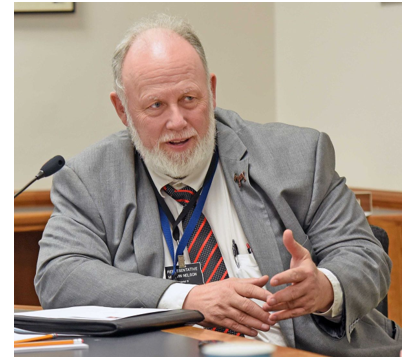News Article Article pages that do not meet specifications for other Trust Project Type of Work labels and also do not fit within the general news category.
Lawsuit claims N.D. ‘gives away’ $2B with Lake Sakakawea Mineral Law

A lawsuit filed Wednesday against the state of North Dakota seeks to prevent the transfer of up to $2 billion in oil and gas mineral rights, challenging a recently enacted state law as unconstitutional.
The case filed by state Rep. Marvin Nelson and others relates to an ongoing dispute over the ownership of minerals under Lake Sakakawea, which the Legislature sought to clarify last year through Senate Bill 2134.
The lawsuit, filed in Cass County District Court, argues the law is unconstitutional and seeks to stop a survey that is underway to review the historical channel of the Missouri River as it existed before the Garrison Dam, which created Lake Sakakawea.
The legislation is estimated to reduce state revenues by $205 million for 2017-19 through oil royalty, rent and bonus payments that will be returned or not collected.
The lawsuit claims the state owns all of the minerals under Lake Sakakawea and the legislation gives away the perpetual ownership of those minerals, worth an estimated $1.76 billion with the exact value to be proven at trial.
Nelson, D-Rolla, who was a vocal opponent of the legislation, said Wednesday the state holds those sovereign minerals in trust for the people of the state. He argues the courts should resolve property disputes, not the Legislature.
“This illegal law harms North Dakota taxpayers for the benefit of a small group of private parties,” said Nelson, who ran unsuccessfully for governor in 2016.
Sen. Kelly Armstrong, R-Dickinson, the prime sponsor of the bill, called the arguments in the lawsuit “dead wrong.”
“This would be far and away the largest taking in the history of North Dakota from private property owners,” Armstrong said.
During the legislative session, supporters of the law said it corrects what many see as a “land grab” by the state related to disputes over mineral ownership, returning royalty payments to the rightful owners.
But opponents said the state leases minerals for the benefit of all North Dakotans and the greatest beneficiaries of law may be oil companies and the federal government. The North Dakota Petroleum Council lobbied in support of the bill, arguing that uncertainty over mineral ownership around Lake Sakakawea deters oil development.
Other plaintiffs in the lawsuit against the state are Paul Sorum, of Fargo, a Republican candidate for governor in 2016, his running mate Michael Coachman of Larimore, as well as Charles Tuttle of Minot and Lisa Omlid of Bismarck.
Attorney Terrance Moore of Edina, Minn., described the plaintiffs as concerned North Dakota taxpayers and residents. He said the case was filed in Cass County, where Sorum lives, because it’s a convenient venue.
In addition to the state, the North Dakota Industrial Commission, the Board of University and School Lands, Gov. Doug Burgum and Attorney General Wayne Stenehjem are listed as defendants.
Burgum, who leads both the Industrial Commission and the Land Board, was still reviewing the lawsuit and had no comment on Wednesday, said his spokesman, Mike Nowatzki. When he signed the legislation, Burgum said in a statement he commends lawmakers for “enacting a clear road map toward resolution that includes due process for stakeholders.”
Attorney General Wayne Stenehjem said his office is reviewing the complaint and will determine the state’s response after conferring with the Land Board and the Industrial Commission.
Under the law that is being challenged, the Industrial Commission hired a consultant who is reviewing the historical Missouri River channel, with a report anticipated in March. The Industrial Commission will be asked to adopt the findings after taking public input.
Revenues from an estimated 25,000 mineral acres are anticipated to be surrendered, affecting the state’s Strategic Investment and Improvements Fund.
